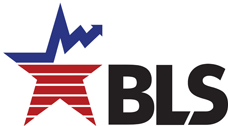Wages track fairly closely with the consumer price index:
For inflation you can use a calculator like here:

www.bls.gov
A $60 Switch game in March 2017 will be close to $80 for a Switch 2 game by the time June arrives:
People might argue that the Switch 2 is about $50 overpriced compared to the Switch:
But that fails to take into account things like tariffs, the cost of which always get passed onto the consumer. And also the hardware is not an exact 1:1 comparison ie. it goes without saying that a Switch is not a Switch 2. It depends on how much the hardware costs Nintendo to produce and how much they are skimming off the top this time around. That's just complete fart in the wind speculation at this point.
Compare to something more modern, it's $50 more expensive than the base Steam Deck LCD was in 2022, despite seemingly offering better hardware. Not a peep was raised about that even though the Steam Deck RRP would be almost exactly $450 today...
Basically, I don't believe the price increases we see in gaming are anything out of the ordinary ie. they broadly align with the CPI. But it can also be true that the average worker should be getting paid better.
Sure you can tilt the balance back in favor of wages by lowering prices - but how do you realistically do that? Nintendo shareholders are not going to allow money to be left on the table for the good of humanity.












